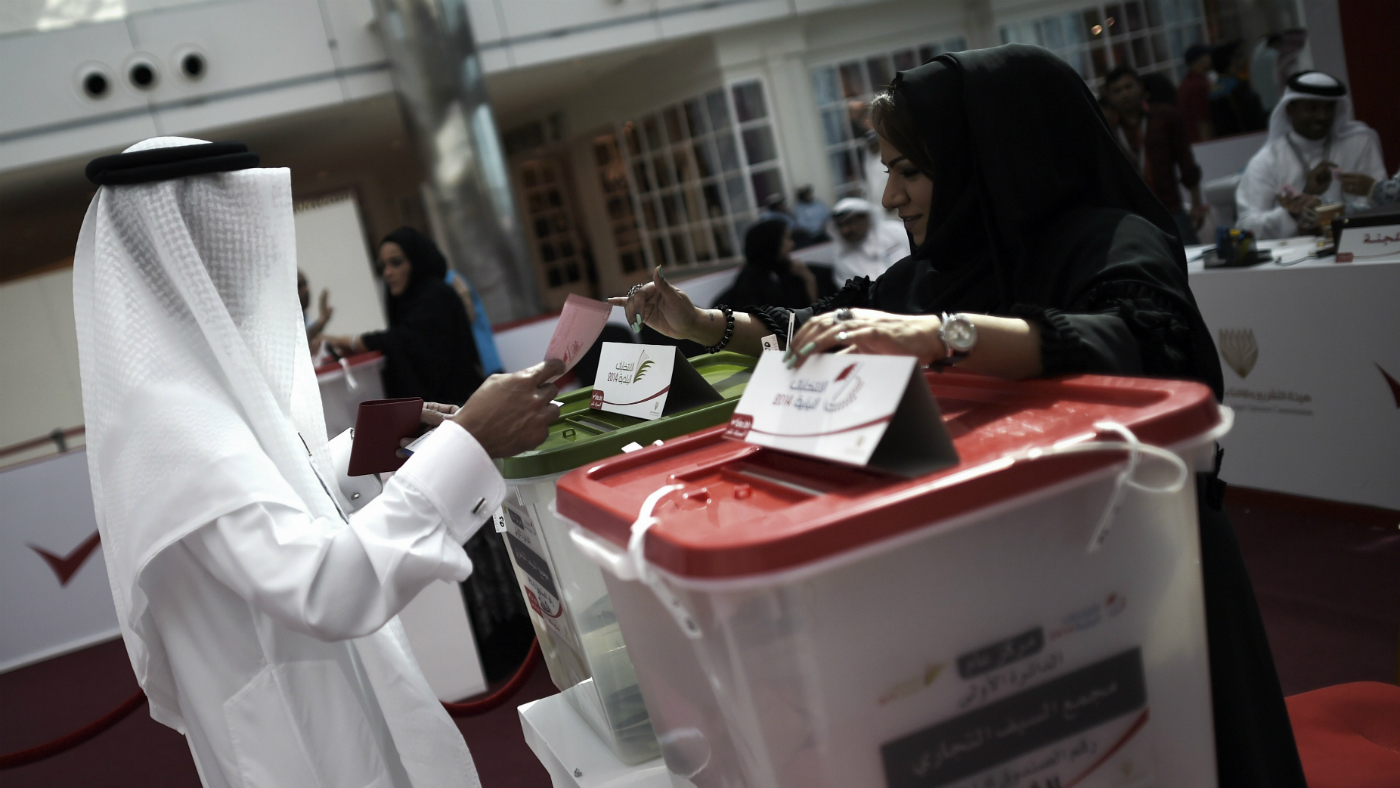Is democracy under threat in Bahrain?
Government of the oil-rich nation under fire after crackdown on opposition parties

A free daily email with the biggest news stories of the day – and the best features from TheWeek.com
You are now subscribed
Your newsletter sign-up was successful
Concern is mounting over upcoming elections in Bahrain, after the country’s government effectively banned all rival parties and jailed a prominent opposition figure.
The oil-rich Gulf state - ruled by the al-Khalifa royal family - is due to hold elections on 24 November for the Council of Representatives of the country’s national assembly, which The Guardian calls “one of the Gulf’s few democratic institutions”.
However, in May this year the assembly approved legislation that “virtually bans members of the political opposition from seeking election”, according to Americans for Democracy and Human Rights in Bahrain (ADHRB). In June, the new law was ratified by King Hamad bin Isa Al Khalifa.
The Week
Escape your echo chamber. Get the facts behind the news, plus analysis from multiple perspectives.

Sign up for The Week's Free Newsletters
From our morning news briefing to a weekly Good News Newsletter, get the best of The Week delivered directly to your inbox.
From our morning news briefing to a weekly Good News Newsletter, get the best of The Week delivered directly to your inbox.
The move prompted outcry from human rights organisations. Now, allies in the US and Europe have also expressed concern about the legitimacy of the upcoming election.
What are the legislative changes?
The eligibility of citizens to run for the Council of Representatives in Bahrain is determined by the Law on the Exercise of Political Rights.
The government, which has been under the control of Prime Minister Prince Khalifa bin Salman Al Khalifa since the country’s independence in 1971, amended the law to extend prohibition to members of parties that were dissolved “for committing a serious violation of the provisions of the Kingdom’s Constitution”.
A free daily email with the biggest news stories of the day – and the best features from TheWeek.com
The ADHRB says that “in effect, these new provisions apply to nearly all of Bahrain’s formal and informal political opposition groups”, as well as “thousands of independent activists”.
The Al Khalifa family’s crackdown on dissenters can, according to the New Arab, be traced back to 2011, when Bahrainis “joined protesters in other autocratic Arab states in what came to be known as the Arab Spring”. The Shia majority were “crushed” by the ruling Sunni minority, the site adds, and tensions have been high ever since.
Who is Sheikh Ali Salman?
Sheikh Ali Salman was the leader of the main Shia opposition party Al-Wefaq, which had the biggest bloc in parliament before the 2011 protests. The BBC reports that its members resigned when the protests were suppressed, and the party was later banned, but Salman remained “among those calling for democratic reforms”.
Salman was arrested in 2014 on what the New Arab calls a “flimsy charge” of collusion with Qatar, one of Bahrain’s regional rivals. This week, he was sentenced to life in prison, a decision that human rights group Amnesty International described as a “travesty of justice”.
What has the response been?
In a letter to the Foreign Office this week, a cross-party group of MPs warned that Bahrain now “effectively bans major opposition figures from holding political office”.
A similar cross-party statement has been issued from the Irish parliament, calling on Bahrain to allow international bodies to monitor the elections.
The White House released a statement, saying the US was “concerned” by the imprisonment of Ali Salman. However, Radio Free Europe says that Washington “will not seek to impose sanctions over the matter” but “will continue to raise concerns when human rights issues arise”.
Today, Bahrain’s government said the accusations are “not based on facts”, and that the activities of the dissolved political societies had “had an impact on the national security”.
The statement accused the parties of having “received political and financial support” from “Iran, Qatar and Hezbollah”, and that Salman’s sentence “reflected the serious crimes committed”.